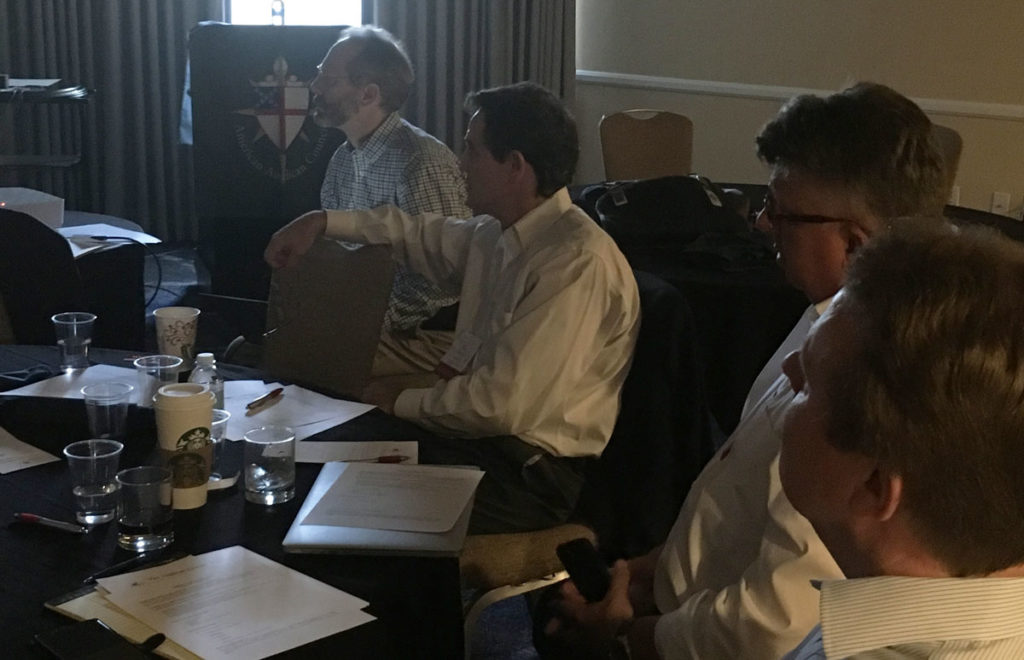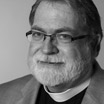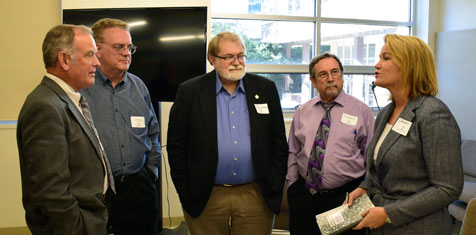This week the American Anglican Council (AAC) hosted two important gatherings of denominational leaders, heads of mission societies, and…Anglican Lawyers (oh my)! Our purpose and calling is to help the Church (not just Anglicans, but those with whom we find “Common Ground” in Christ) to become the salt and light (Matthew 5:13-16) Jesus calls us all to be in a rapidly decaying world.
(In photo above, CGCN Steering Committee members (from left to right) Mark Chavez, North American Lutheran Church, Jim Barnes, Evangelical Association of Reformed and Congregational Christian Churches, Phil Ashey, American Anglican Council, Kevin Rudolph, ECO – Presbyterian, Carmen Laberge, Presbyterian Lay Committee.)

The AAC hosted the annual meeting of the Common Ground Christian Network (CGCN), a coalition of Anglicans, Methodists, Lutherans, Presbyterians, Reformed Evangelicals and Congregationalists who share a common confession of faith, “Jesus Christ, our Common Ground and Common Cause.” This year we wanted to drill down into our commitments to communicate, cooperate and collaborate on engaging North American Culture, Social-Legislative witness to our governments, Church Planting, and more. Our speakers included Mark Tooley of the Institute on Religion and Democracy and Dr. Stephen Noll of the ACNA Task Force on Marriage, Family and Single Life (on Social-Legislative witness), Scott Weimer of Atlanta’s North Avenue Presbyterian Church, Kathy Branzell of Mission America and Love 2020, and Justin Giboney of the Atlanta based AND Coalition (on Engaging North American Culture), and the Rev. Dr. Jeff Christopherson of the North American Mission Board of the Southern Baptist Convention and Jon Spellman of the Atlanta based networks for Church Planting. In addition, we invited the Rev. Canon David Roseberry of Leader Works to address us on “the new evangelism and discipleship” that is really not-so-new—“Generosity: Giving up for the prosperity of the Gospel.” As David Roseberry shared from the history of the early church:
“. . . Christianity served as a revitalization movement that arose in response to the misery, chaos, fear, and brutality of life in the urban Greco-Roman world. . . . Christianity revitalized life in Greco-Roman cities by providing new norms and new kinds of social relationships able to cope with many urgent problems. To cities filled with the homeless and impoverished, Christianity offered charity as well as hope. To cities filled with newcomers and strangers, Christianity offered an immediate basis for attachment. To cities filled with orphans and widows, Christianity provided a new and expanded sense of family. To cities torn by violent ethnic strife, Christianity offered a new basis for social solidarity. And to cities faced with epidemics, fire, and earthquakes, Christianity offered effective nursing services. . . . For what they brought was not simply an urban movement, but a new culture capable of making life in Greco-Roman cities more tolerable.” – Rodney Stark, The Rise of Christianity, Princeton University Press, 1996, page 161
The Common Ground Christian Network believes that God has called us to complete rather than compete with each other. We must join hands as Biblically faithful Anglicans, Methodists, Presbyterians, Lutherans, Reformed and Congregational and work together for the sake of fulfilling both Christ’s Great Commission and his Great Commandment in the communities we serve together. Our mission is to shape our increasingly aggressive secular culture with the truth of the Gospel, in the transforming love of Jesus Christ.
This mission also involves a “Benedict-option” like commitment to reshape the culture of the Church so that we find our way back to Gospel truth with an attitude of compassion and an apologetic of sacrificial generosity. We have a lot of work to do—including expanding our coalition with other Biblically faithful mission groups across denominations. Our next meeting will include younger leaders as well as those on the cutting edge of Great Commission ministries, as we continue to network and share resources for engagement, social witness and church planting in North America.
Yesterday, the American Anglican Council hosted the second annual gathering of the Anglican Lawyers Network at the annual conference of the Christian Legal Society, this year in Newport Beach, California. Our group, representing Chancellors (lawyers who represent dioceses) from six Anglican Church in North America (ACNA) dioceses, congregations and mission societies, and the Province itself, met to communicate, cooperate and collaborate on legal challenges that we are facing both within and from outside the Church. We spent close to five hours around the table not only reviewing the canonical issues within the ACNA and our dioceses, but also how to share resources we have all developed to protect our religious freedoms as Anglicans to witness to Christ within our increasingly secular culture.

I have to say that this is really exciting work—to see the Holy Spirit moving, bringing us together to communicate, cooperate and collaborate rather than silo ourselves off into separate camps. Christ has called us to make disciples together, sharing and leveraging each other’s strengths and helping each other’s weaknesses in mission, instead of competing. It’s a wonderful taste of the Kingdom of God! If you’re interested in helping with either of these AAC initiatives, please let us know!



